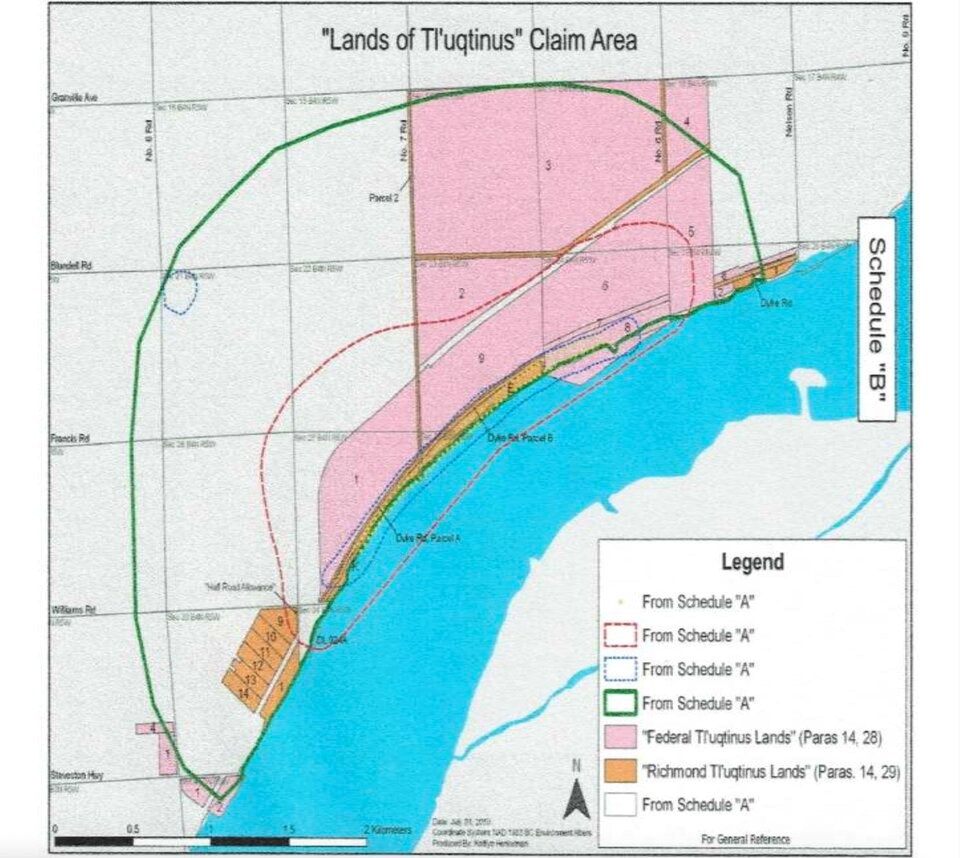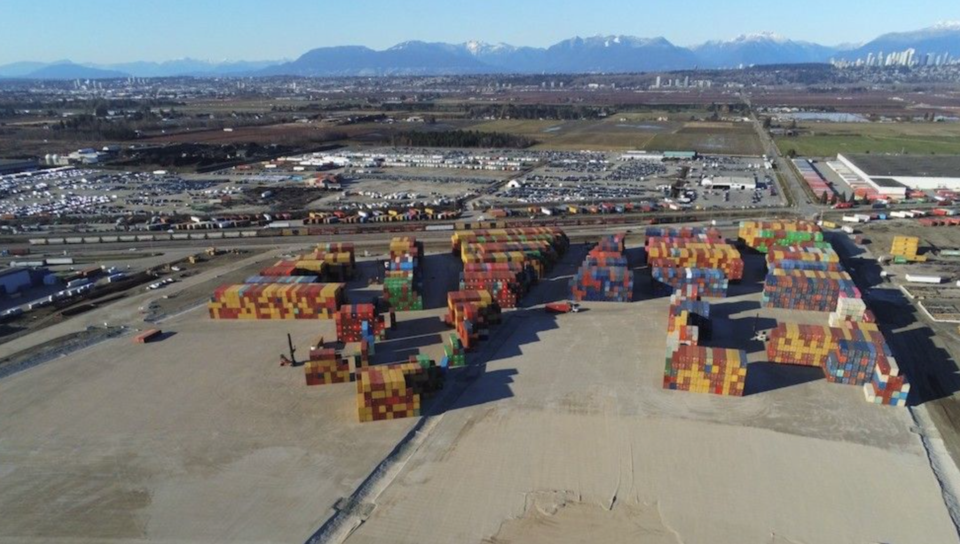B.C.’s Attorney General says she will appeal a Supreme Court decision granting Aboriginal title over several waterfront lots in Richmond.
In a ruling last week, a B.C. Supreme Court judge granted title to a portion of the original 7.5-kilometre land claim — land used by Cowichan tribes as a seasonal fishing village, before colonial administrators evicted the people who lived there.
The decision returns land title back to descendants of the Cowichan Nation. It also overlaps with lots occupied by several port terminals and warehouses operated by Amazon, UPS and Canadian Tire, among others.
In a statement Monday, B.C. Attorney General Niki Sharma said unopposed, the ruling could have “significant unintended consequences” for fee simple private property rights in B.C.
“We disagree strongly with the decision,” she said. “British Columbia will be filing an appeal and seeking a stay to pause implementation until the appeal is resolved.”
Sharma added that the government is committed to upholding both private property rights and reconciliation with Indigenous peoples.
“This case is an example of why the province prefers to resolve land claims through negotiation — where we can protect property rights directly — rather than risk considerable uncertainty through court decisions,” Sharma said.

B.C.’s decision came hours after Island First Nations, in their own press conference, celebrated the ruling.
Chief John Elliott of Stz’uminus was steadied by those around him as he became emotional at times during his speech on what the ruling meant to his people. “Someday we’ll be back on the river doing what our ancestors did.”
Cowichan Tribes Chief Sulsulxumaat Cindy Daniels said the declaration is a “powerful reminder” to Canada and B.C. that historical injustices must be addressed.
An emailed statement from Transport Canada Monday said the federal department was considering the decision and its implications.
The ruling had already provoked a strong response from members of B.C.’s Opposition.
Langley-Abbotsford MLA Harman Banghu wrote on social media that the ruling “just cracked open the door for your land title to mean nothing.”
And in a public letter to B.C. Indigenous relations minister Spencer Chandra Herbert, Opposition critic Scott McInnis said that allowing the decision to stand “will only invite further conflict, deter economic investment, and place vital infrastructure at risk.”
The decision, which also grants the plaintiffs fishing rights along the south arm of the Fraser River, was also opposed by Chief and council for the Musqueam First Nation.
In a statement Friday, they said the nation “fundamentally disagrees” with the judgment. As a defendant, Musqueam had argued that the Cowichan historically sought their permission to fish in the region. But the judge found their relationship was co-operative.
Fishing rights handed to the Cowichan — which include all species used as food, or for social and ceremonial purposes — extend from the eastern tip of Annacis Island and Lulu Island to the mouth of the south arm of the Fraser River.
The B.C. government granted some of the village lands to settlers. And in the 1930s, the City of Richmond acquired two lots when they were put up for public auction because of delinquent municipal taxes.
In court, the City of Richmond claimed no declaration of Aboriginal title should be made because the Richmond lands contain important municipal flood infrastructure that benefits its 230,000 residents.
A declaration would effectively expropriate land in Richmond without compensation and put $100 billion in infrastructure at risk, the city claimed.
However, B.C. Supreme Court Justice Barbara Young found the lands owned by Richmond remain “unoccupied and undeveloped” except for a dike. The city-owned parcels are also the same land where the historic Cowichan village was located.
“The significance of this land to the Cowichan far outweighs its significance to Richmond,” wrote the judge.
A spokesperson for the city said it is still reviewing the ruling.
With files from Michael John Lo/Times Colonist



